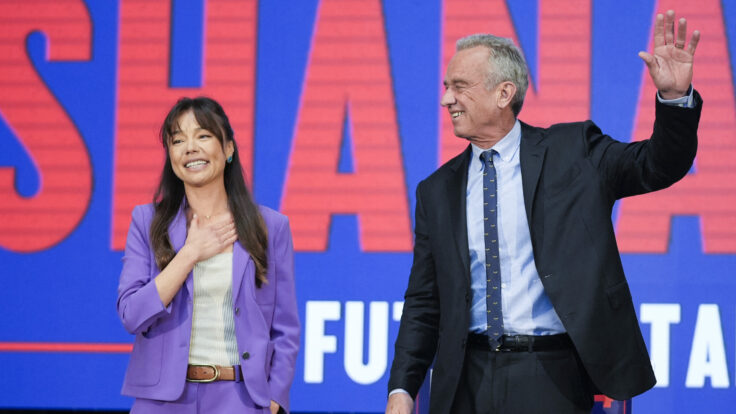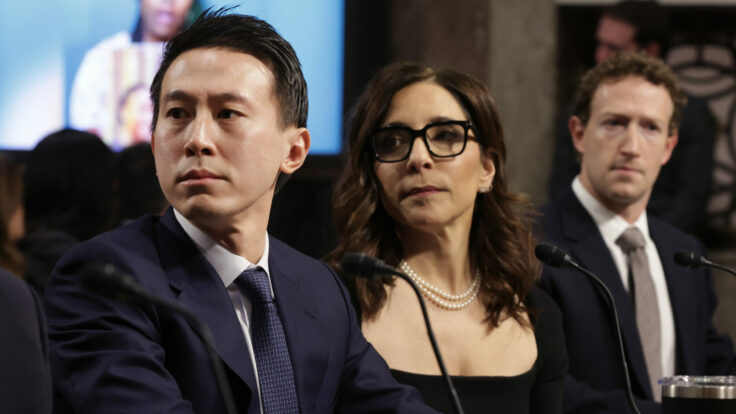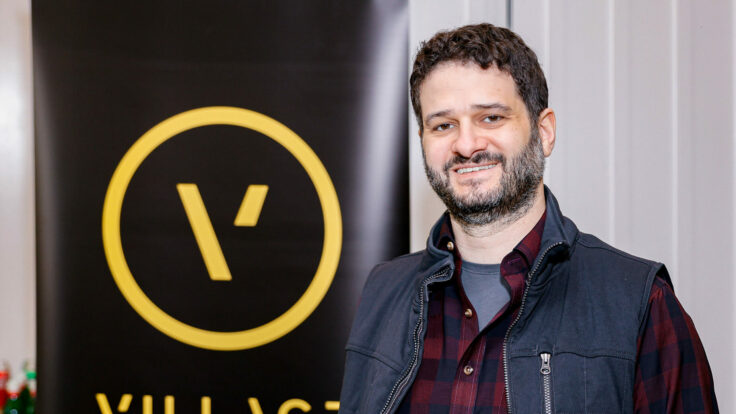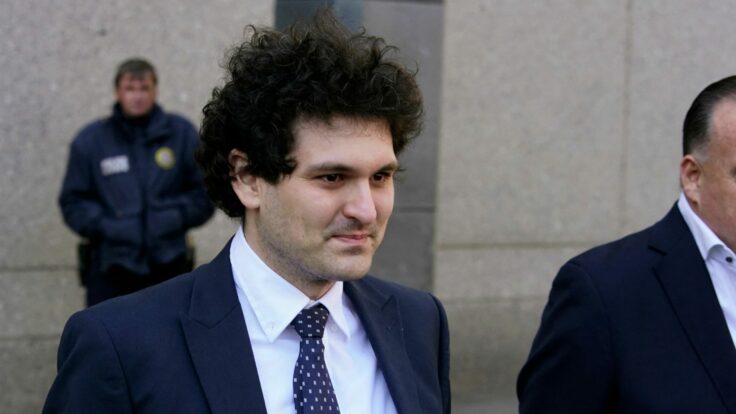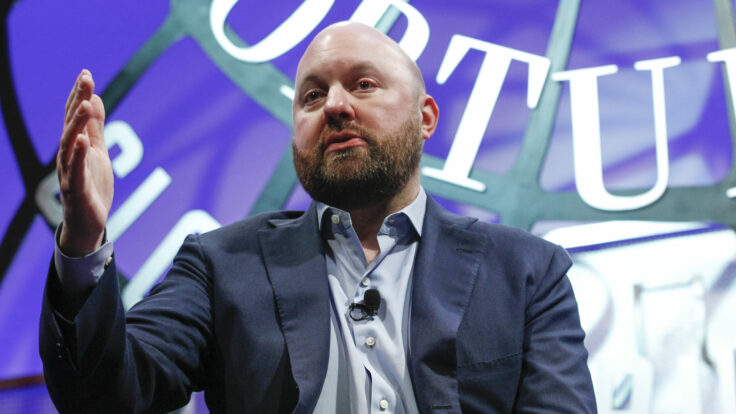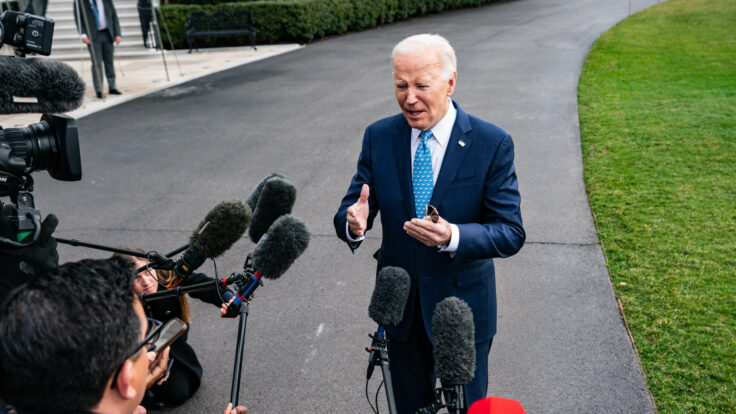 |
 |
|
Greetings from Code. Say hi if you’re here.
|
|
Today, I have a look at the Silicon Valley family offices that truly matter— the ones that folks in the industry talk about privately. If you have a friend who works in or with one of these shops, they can sign up for this weekly email here. And as always, you can write to me with any tips or ideas by replying directly to this note.
Teddy
|
|
|
| There is an aphorism in the rarefied world of family offices that industry insiders will often recite at their stuffy conferences in Napa or Half Moon Bay: If you know one family office, you know one family office. In other words, every ultra-high-net-worth family is unique, and the contours of the investment-and-lifestyle shops they build to manage their assets, their profiles, and their vacations, reflect these idiosyncrasies. Their remit can include everything from managing family meetings to advising on “intergenerational wealth transfers,” to tax hacks like Opportunity Zones, to managing serious kidnapping threats and obtaining second passports.
Sure, every one of these family office managers is a special snowflake, but the mechanics of running them, as some sources admit off-stage, are not all that different. Yes, some love to make investments and compete with V.C.s, seeing it as a way to maximize their returns without paying management fees; other offices acknowledge that they don’t have the expertise in web3 or carbon sequestration or whatever, and hire outside managers. Some build quasi-endowments with huge in-house staffing to manage all three prongs of typical family-office work—the investments, legal/accounting, and the premium concierge services—while others outsource elements of that labor to specialists who can serve as their C.I.O., C.F.O., box-seat acquirer or dog-walker.
But there is more that unites these single-family shops than divides them. The average family office globally has about $800 million in assets—decamillionaires are better off staying at Goldman Private Wealth rather than paying millions of dollars in annual salaries. And while the family-office industry has been around since the days of John D. Rockefeller, it is now bigger than the $4 trillion hedge-fund industry and is catching up in sophistication. Family offices these days are engaging in shareholder activism campaigns, launching E.S.G. initiatives galore, even spinning out entities to manage external capital from other wealthy families who want to invest together.
And yet unlike hedge funds, there is practically zero regulation of these entities by the S.E.C., and, more often than not, practically zero scrutiny. Critics describe these family offices as almost a shadow financial system. That misses the mark in many ways—billionaires are typically more interested in capital preservation rather than capital accumulation—but yeah, they’ve got some power beyond moving the yachts and aircraft into position and herding butlers and horses at their estates. And when family offices start executing these tactical or strategic initiatives, the staffing can swell into the hundreds of employees.
Given their secrecy-by-design, family offices are also a totally underexplored facet of how our economy, politics, and culture works these days. In recent months, I’ve reported on the inner workings of Elon Musk’s peculiar office, Excession, and Sergey Brin’s enormous Bayshore Global Management, revealing some of the characters and philosophies that guide their decision-making. Tech billionaires can be fairly cash-poor, but these are but a few of the family offices doing genuinely interesting work, alongside Redwood Pacific Management, a rare co-sibling shop that manages the assets of Anne and Susan Wojcicki; Laurene Powell Jobs’s Emerson Collective, of course, another fascination of mine; Ekahi Aloha, the Hawaiian-themed shop that manages Marc Benioff’s Time magazine ownership; Lawrence Investments, the entity that manages the lavish affairs and enormous loans of Larry Ellison, as well as his more pedestrian concerns, like Ellison’s purchase, then proposed teardown, and now looming sale of a $150 million property in Palm Beach.
Today, I wanted to focus on a few more ambitious single-family shops in Silicon Valley—the ones that industry insiders gossip about under their breath and off the record, over drinks and at dinners. Some you’ve heard of, some I’m betting you haven’t. Their power will only grow alongside their fortunes.
|
|
|
| Try searching Google for Koop LLC and, trust me, you’ll find nothing. But industry insiders love to kibitz about Larry Page’s family office and particularly its C.E.O., Wayne Osborne, the self-stylized singer-songwriter with a Princeton Theological Seminary divinity degree who has run Koop for a decade. “Koop is interesting because of who runs it,” as one family office vet told me the other day. Osborne is not only gossiped about because he oversees one of Silicon Valley’s most prominent family offices, with up to $100 billion under advisement, but also because he simultaneously runs a not-so-small SaaS business that sells Koop’s software to other family offices.
Way2B1, which “supports individuals and families in managing their complex lives in a secure, private, and efficient manner,” is essentially a management system, like Asana, for elite families like the Pages. And yet you don’t have to ask around for long to hear folks wonder about how Osborne is able to manage a family office alongside his family-office software side hustle. Then again, everyone in the family office world is a salesperson of some sort—there are hustlers galore here, all hawking their wares and software and proprietary web3 platforms at those stuffy conferences, and Osborne obviously has a legit leg up in the space. Indeed, it can be hard to tell where the family office ends and the software company begins.
That being said, Osborne is well-regarded, and the Pages are very involved at Koop, which has a reputation for being one of the better-run family shops. Despite its nearly nonexistent public profile, Koop actually has lots of employees—there was recently an internal reorg, I’m told, as befitting a bonafide company. Most of the money-managing and investing is handled by Morgan Stanley, while the staff focuses on internal software, estate management, and the Pages’ oceanic affairs—including Larry’s personal Caribbean island, Eustatia, near Richard Branson’s Necker Island, and his travels throughout the South Pacific. Koop also manages the family’s relatively nascent oceanic charity: Page’s wife, Lucy, recently disclosed that her family is the wealth behind Oceankind, an ocean-protection nonprofit long rumored to be linked to the Pages. Osborne himself has a particular philanthropic interest in protecting kids from child abuse—he’s told sources of mine about it and serves on a nonprofit board—but it’s not clear to me how much that is an Osborne priority versus that of the family he represents.
|
| ADVERTISEMENT |
 |
| Facebook is taking action to keep its platform safe
We have over 40,000 people working on safety and security across our platforms. That’s more than the size of the FBI.
And it’s just one example of the work we’re doing to create safer connections for our communities.
Learn more about our work ahead.
|
|
|
|
|
| Iconiq, the multi-family office led by the controversial, charming, hyper-connected, envy-inducing and ubiquitous Divesh Makan, is easily the most gossiped-about wealth management shop in town and has been for years. “A very spicy reputation” in the words of someone the other week. True!
Divesh—a first-name only sort of character when you’re talking with the right people—came to Silicon Valley fame by leveraging his pre-I.P.O. relationship with Mark Zuckerberg to build a juggernaut that scooped up most of his cash and subsequently became the money manager of choice for a number of elite Silicon Valley leaders of that generation. Divesh has cultivated an almost mystifying allure and proximity to powers-that-be like Zuckerberg, although it’s not fully clear how much of Zuckerberg’s cash is currently steered by Iconiq versus Mark’s and Priscilla’s personal, philanthropic LLC, the Chan Zuckerberg Initiative. Nevertheless, more than 250 heavies—from Reid Hoffman to Sheryl Sandberg— piled their assets into Iconiq’s coffers, contributing to more than $80 billion in AUM. The farm system is truly impressive: Iconiq client “relationship managers” are also often hired out to help next-gen tech entrepreneurs, including Jack Dorsey, create their own single-family offices once they’ve gotten their feet wet at Iconiq’s shop.
Meanwhile, Iconiq has expanded far beyond its wealth-management roots, moving into venture capital, private debt, and real estate, spurring constant snickering about conflicts of interest and alleged fissures within the firm over how an elite wealth manager could do what is best for its clients while also hawking its own funds. (Then again, the big banks do this all the time.) To Divesh’s defenders, and there are many, this is all just jealousy: Everyone hates the Yankees, and everyone hates him because they ain’t him.
The actual management of Zuckerberg’s personal affairs is managed by a very little-known family office that works closely with Iconiq, called West Street. There had been almost nothing written about West Street until Business Insider produced a series of reports that characterized the family office as an H.R. nightmare, with too much partying and too much harassment. The stories were particularly critical of Brian Mosteller, a former Obama aide (Joe Biden officiated his wedding) who effectively ran the shop and that Insider alleged turned a blind eye to reports of misconduct. Zuckerberg’s spokesman, Ben LaBolt, characterized these allegations back then as “a collection of unfounded rumors, exaggerations, and half-truths” from disgruntled employees who attempted to essentially extort the family office for a big payout. But it’s interesting to see that Mosteller has recovered just fine—a few months ago, none of the allegations stopped him from landing a top gig in the State Department. To be sure, there are many family offices—with their young nannies, drivers, security, and yacht hands—whose H.R. protocols wouldn’t look good under the microscope. What was unusual here was that it spilled out into the press.
|
| The Sprawl of Eric Schmidt |
|
| One of the single biggest family offices in the entire U.S. belongs to Eric and Wendy Schmidt, with just under 700 people working for them at Hillspire LLC and related entities, like the rapidly-growing Schmidt Futures. That massive number doesn’t surprise me: the number of ambitious initiatives, projects, and consultants that the Schmidts are involved with is dizzying. There are the trophy properties the couple collects across the country; the ocean protection work Wendy does in Nantucket; the political work Eric does in D.C.; and of course the global international conference circuit that takes Eric gallivanting around the world. Hell, a few years back, a Schmidt family office entity even beat out the big public-company banks to buy 20 percent percent of D.E. Shaw, the very-private, cash-spewing quant fund where Jeff Bezos cut his teeth. That sort of deal shows more than others how sophisticated these beasts have become. With all of those assets and activities, it is no surprise that a few years back the Schmidts built themselves a two-story, 25,000-square foot office in downtown Menlo Park for Hillspire and their entire empire.
Led until 2019 by Chuck Chai, a former top official in Obama’s Treasury Department, Hillspire is now co-run by Maria Sefarian and Gregg Goldman. But its most interesting and public-facing executive is Ken Goldman, a longtime C.F.O. and Silicon Valley fixture, most recently at Yahoo. Another person to always watch at Hillspire is Amy Rao, the Democratic bundling eminence and political and philanthropic counsel to the Schmidts who is technically a Hillspire employee.
|
| ADVERTISEMENT |
 |
|
|
| Bill Gates’s “Culture of Fear” |
|
| Calling Cascade a family office is an insult. It is effectively a mega-asset manager—but, then again, the line between large family offices and asset management boutiques is thinning anyway. To wit, Cascade manages an estimated $180 billion in combined assets for Bill Gates and the foundation that bears his name, with major holdings in public companies like the Four Seasons and in real estate, especially farmland. For decades, this was done quietly, while maintaining Bill’s pristine reputation as a lovable nerd. Of course, Cascade was thrust into the national spotlight when, in the wake of the Gates divorce, it was exposed that there was a “culture of fear” at the office, as The New York Times put it in their explosive story in May 2021. (Cascade denied some, but not all, of the reported misconduct.) At the center of the firestorm was Michael Larson, the Gateses’ money man for almost three decades who is practically peerless in the world of wealth management. Larsen remains, but the firm rebranded around the time of the Times story—from Bill and Melinda Gates Investments to Cascade Asset Management. And after decades of largely operating in the shadows, Cascade just unveiled a website that notably talks up its workplace culture. |
|
|
| The twin stewards behind the Bezos throne are Melinda Lewison, a fellow Princeton alum who has worked at his family office, Bezos Expeditions, since 2005, and Paul Dauber, Bezos’s longtime personal lawyer and aide-de-camp. These two oversee Bezos’s entire life—from his record-setting purchases of Los Angeles properties to his ownership of The Washington Post to the 10,000-year clock that Bezos is building on his personal ranch in West Texas. It is there, in the middle of nowhere, that most of Bezos Expeditions’ work is done; after all, Bezos Expeditions’ primary task is to channel his Amazon fortune into money for Blue Origin, the rocket company that Bezos funds with several billion dollars a year. Bezos Expeditions also does a bit of startup investing (many tech founders’ family offices are, predictably, over-invested in tech). Veterans will recall that Bezos was one of the first angel investors in Google, the company that created so many of Silicon Valley’s most interesting family offices in the first place. |
|
|
|
| FOUR STORIES WE’RE TALKING ABOUT |
 |
| Netflix’s U-Turn |
| A conversation circling Netflix’s ad-tier about-face, Zaslav’s narrative heel-turn, and more. |
| WILLIAM D. COHAN & MATTHEW BELLONI |
|
 |
|
 |
|
 |
|
|
|

|
|
|
| You received this message because you signed up to receive emails from Puck
Was this email forwarded to you?
Sign up for Puck here
Interested in exploring our newsletter offerings?
Manage your preferences
Puck is published by Heat Media LLC
227 W 17th St
New York, NY 10011
For support, just reply to this e-mail
For brand partnerships, email ads@puck.news
|
|
|






